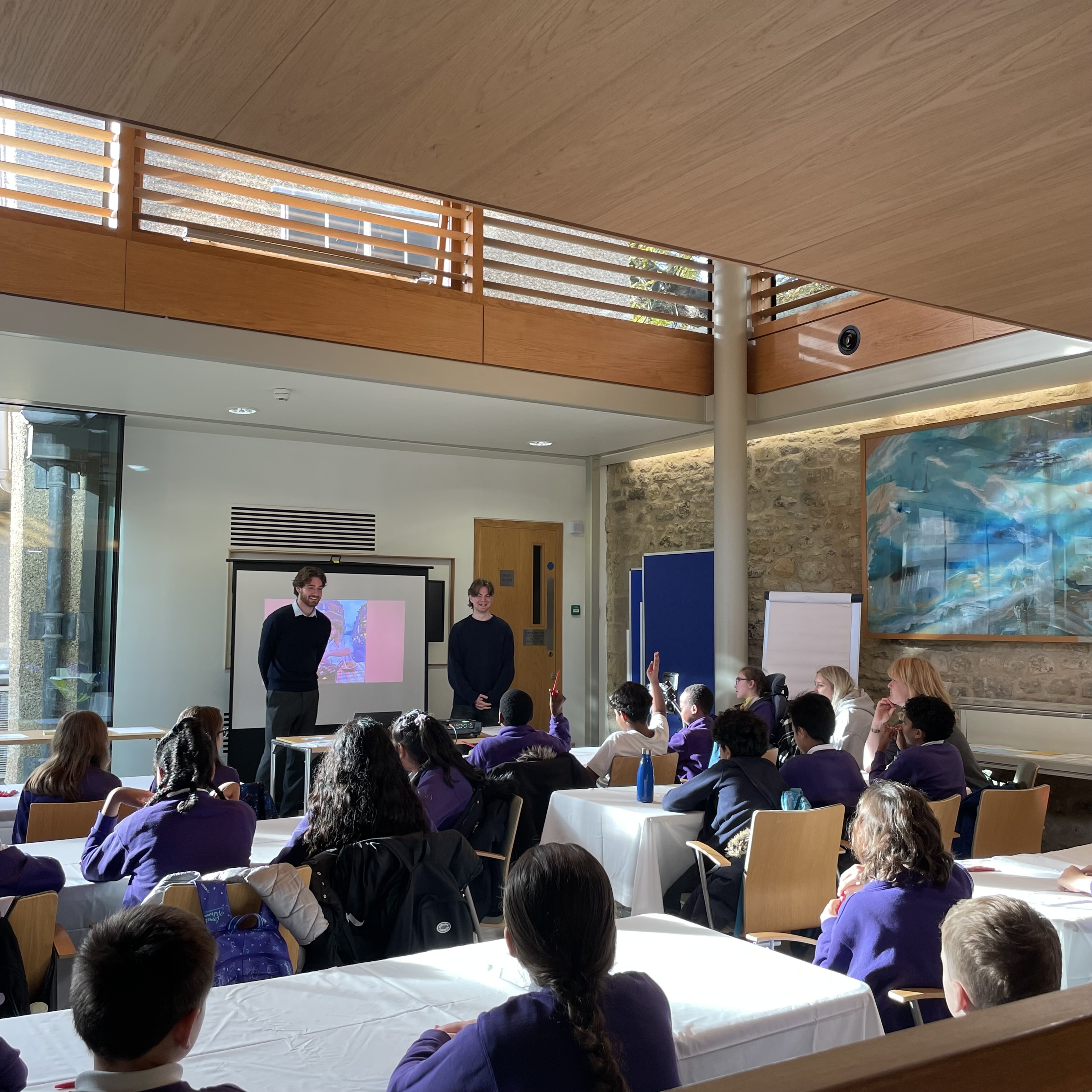Edith Matthewson (QTE ambassador, Lady Margaret Hall) interviews Lupe Núñez-Fernández, First-time entrant commendee of the 2022 Stephen Spender Prize Open Category, for ‘This is the Good Steward’, her translation of María Sánchez’s ‘Esta es la mano que cuida.’
What inspired your interest in language and, in particular, poetry in translation?
My family moved to Atlanta from Madrid when I was 12. I had to learn English from scratch, having only known Duran Duran lyrics before, and in a way I had to translate myself. When I first read William Blake’s books it was a transformative experience. I wondered if they were even translatable into Spanish, and if so, how a translator would go about it. I was fascinated with the idea that languages could mesh together, or perhaps not. I studied Ancient Greek and Latin at university and became aware of the translator’s endless limitations – and opportunities. While attempting to translate collectively poems from languages I don’t even know at the British Centre for Literary Translation Summer School’s multilingual poetry translation workshop last summer, I realised why I love translating poetry so much: the playfulness, the musicality and the near impossibility of the task appeal to me.
Why did you choose to translate ‘Esta es la mano que cuida’?
I came across a collection of María Sánchez’s poems after reading Land of Women [original Spanish title Tierra de mujeres; translated into English by Curtis Bauer], a book in which she gives voice to women who worked in rural Spain but were silenced by history. I was enthralled by this poem when I first read it. It struck me as bringing something out, like a question that would otherwise be lost, and I felt the urgent need to share that.
What aspect of your translation are you most proud of?
I’m happy with the way I resolved the title. I loved the inherent ambiguity in the original: just like ‘the hand that cares for’ suggests there may be a hand that does not, ‘the good steward’ emphasises there may also be a bad one. But I have since workshopped this translation and realised that even published drafts can feel like moving sands when one collaborates with other people. It’s like tapping into a translation ‘hive mind’ and becoming aware of the infinite possibilities, which is exciting and very humbling. Perhaps I would now change the title completely.
How ‘free’ is your translation? You changed the literal meaning of the title quite significantly in order to capture the original’s connotation; were there other words or phrases which ended up looking very different in your translation?
I tried to stick to the original as closely as possible, to see if the deceptively plain language could work in English too. There’s already quite a lot going on in terms of unusual structure, technical language, register changes and multiple voices, so mirroring tightly helped me to carry many of those elements over.
Does the original have any qualities which you didn’t feel that you were able to convey in your translation?
There is, to my mind, the mystery of all the allusions to inherited, oral culture expressed by the voices throughout the poem. I’m not sure I’ll ever fully grasp all the nuances but hopefully I’ve translated some of the obliqueness.
What advice would you give someone translating poetry for the first time?
Something purely practical: don’t worry about waiting until you finish reading a poem (or anything) to start thinking about how you would translate it. There’s so much that you can take from the initial musicality and rhythm in what you read/hear, and this is precious if you can capture it.


